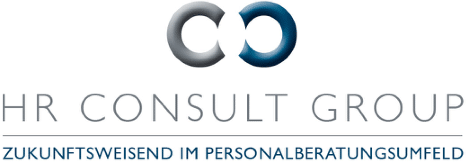Big Data und Analytics: Revolution in der Personalberatung
Die rasante Entwicklung im Bereich Big Data und Analytics hat in vielen Branchen zu grundlegenden Veränderungen geführt, und die Personalberatung ist keine Ausnahme. Diese Technologien bieten innovative Möglichkeiten, um den Recruiting-Prozess effizienter, genauer und effektiver zu gestalten. In diesem Blogbeitrag untersuchen wir den Einfluss von Big Data und Analytics auf die Personalberatung und wie sie die Art und Weise, wie Unternehmen Talente finden und einstellen, revolutionieren.
1. Datengetriebene Entscheidungsfindung
Einer der größten Vorteile von Big Data in der Personalberatung ist die Möglichkeit, datenbasierte Entscheidungen zu treffen. Anstatt sich auf Intuition oder begrenzte Informationen zu verlassen, können Personalberater auf eine Fülle von Daten zurückgreifen, um fundierte Entscheidungen über potenzielle Kandidaten zu treffen. Dies umfasst alles von der Analyse von Lebensläufen und Bewerbungsunterlagen bis hin zur Bewertung von Verhaltensmustern und Kompetenzen.
2. Verbesserte Kandidatensuche und -selektion
Big Data-Tools ermöglichen es Personalberatern, große Mengen an Kandidatendaten effizient zu durchsuchen und zu analysieren. Mithilfe von Algorithmen und maschinellem Lernen können sie schnell die am besten geeigneten Kandidaten für eine bestimmte Position identifizieren. Dies spart Zeit und Ressourcen und erhöht gleichzeitig die Qualität der Kandidatenauswahl.
3. Vorhersage von Mitarbeitererfolg
Analytics-Tools in der Personalberatung können auch dazu verwendet werden, den potenziellen Erfolg eines Kandidaten in einer bestimmten Rolle vorherzusagen. Durch die Analyse vergangener Leistungsdaten und die Identifizierung von Mustern können Personalberater besser einschätzen, wie gut ein Kandidat zu einer Rolle und zur Unternehmenskultur passt.
4. Objektivität und Reduzierung von Verzerrungen
Die Verwendung von Daten und analytischen Tools kann dazu beitragen, subjektive Verzerrungen im Rekrutierungsprozess zu verringern. Indem sie sich auf Daten und nicht auf persönliche Eindrücke stützen, können Personalberater objektivere und gerechtere Entscheidungen treffen.
5. Personalisierung des Recruiting-Prozesses
Big Data ermöglicht eine Personalisierung des Recruiting-Prozesses, indem individuelle Kandidatenprofile erstellt werden, die nicht nur auf Qualifikationen und Erfahrungen basieren, sondern auch auf Verhaltensweisen und Präferenzen. Dies kann dazu beitragen, ein besseres Match zwischen Kandidaten und Unternehmen zu schaffen.
6. Herausforderungen und Datenschutz
Trotz der vielen Vorteile bringt der Einsatz von Big Data und Analytics auch Herausforderungen mit sich, insbesondere in Bezug auf den Datenschutz. Unternehmen müssen sicherstellen, dass sie die Datenschutzgesetze einhalten und ethisch mit den Daten umgehen.
Fazit
Big Data und Analytics verändern die Landschaft der Personalberatung dramatisch. Sie ermöglichen eine datengesteuerte Entscheidungsfindung, verbessern die Kandidatensuche und -auswahl, erhöhen die Objektivität im Recruiting-Prozess und bieten die Möglichkeit zur Personalisierung. Diese Technologien bieten enorme Chancen, stellen aber auch neue Herausforderungen in Bezug auf Datenschutz und ethischen Umgang mit Informationen dar. Unternehmen, die diese Tools verantwortungsbewusst einsetzen, können jedoch ihre Recruiting-Prozesse wesentlich verbessern und sich einen entscheidenden Vorteil im Wettbewerb um Talente sichern.


